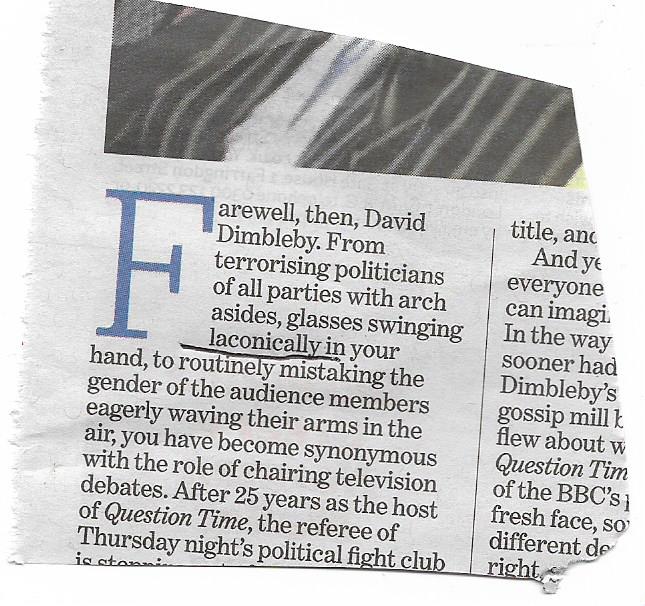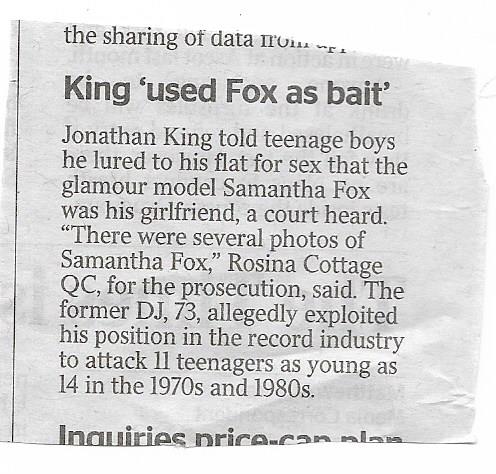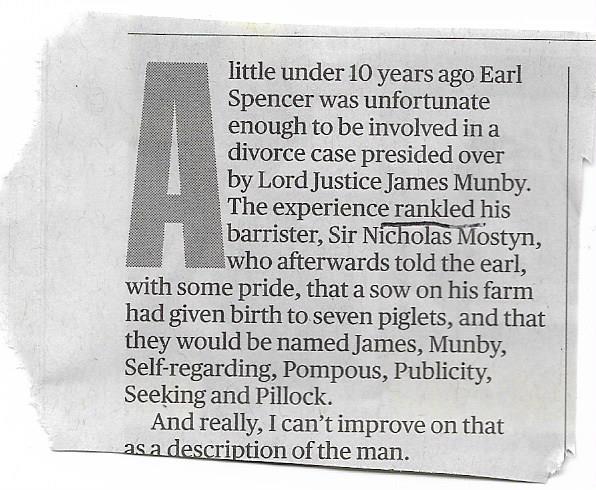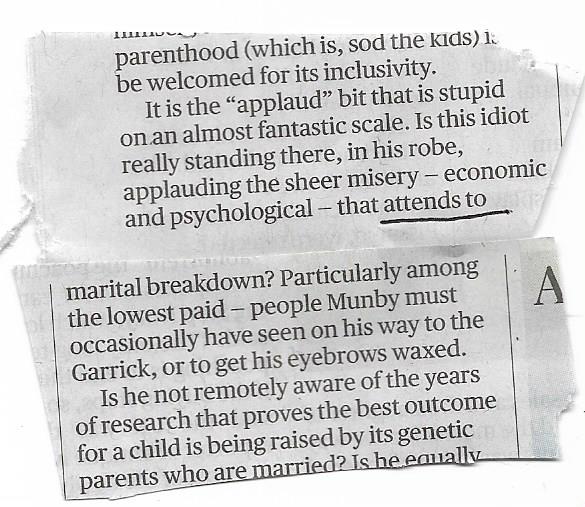As for Jackson, well, he had an insatiable taste for the baroque, which he sometimes sated with a shopping spree
Will Gompertz, Arts Editor, BBC News Online, June 30, 2018
Definition of ‘insatiable’: impossible to satisfy
Definition of ‘to sate’: to satisfy to the full
So obviously one of them has to go. The problem lies with ‘insatiable’ which applies to a desire or appetite. You can’t really have an insatiable taste. I am not sure you can even qualify ‘taste’. You either have a taste for something or you don’t. The makers of Marmite have built the brand on this. The best thing to do is probably change the phrase to ‘craving’ or ‘thirst’.
 i newspaper, June 26, 2018
i newspaper, June 26, 2018  i newspaper, June 19, 2018
i newspaper, June 19, 2018
 Sunday Times, June 10, 2018
Sunday Times, June 10, 2018
 i newspaper, June 1, 2018
i newspaper, June 1, 2018 The Times, June 1, 2018
The Times, June 1, 2018